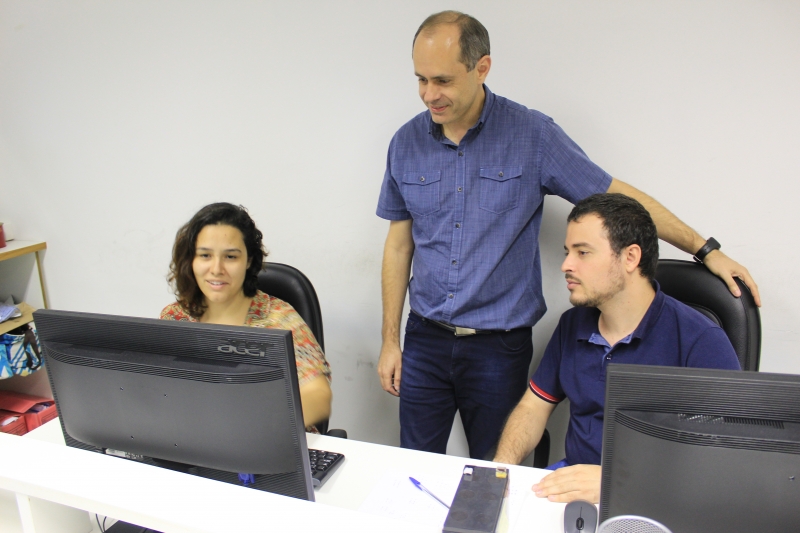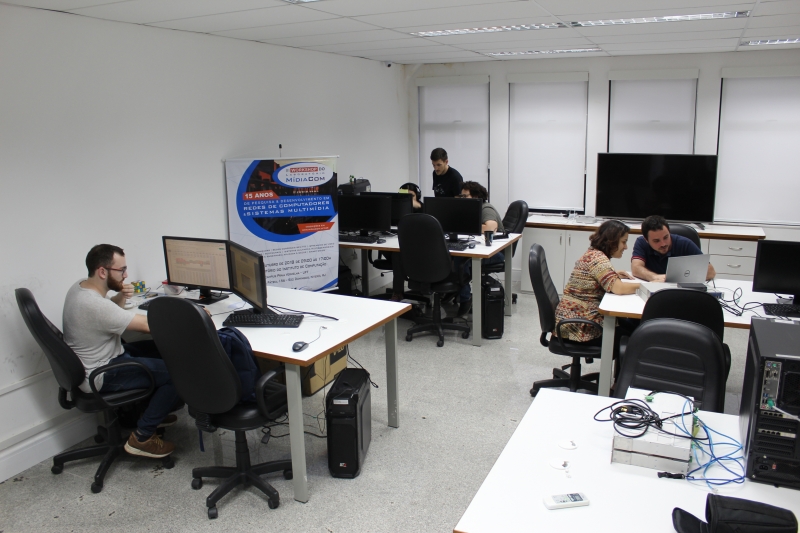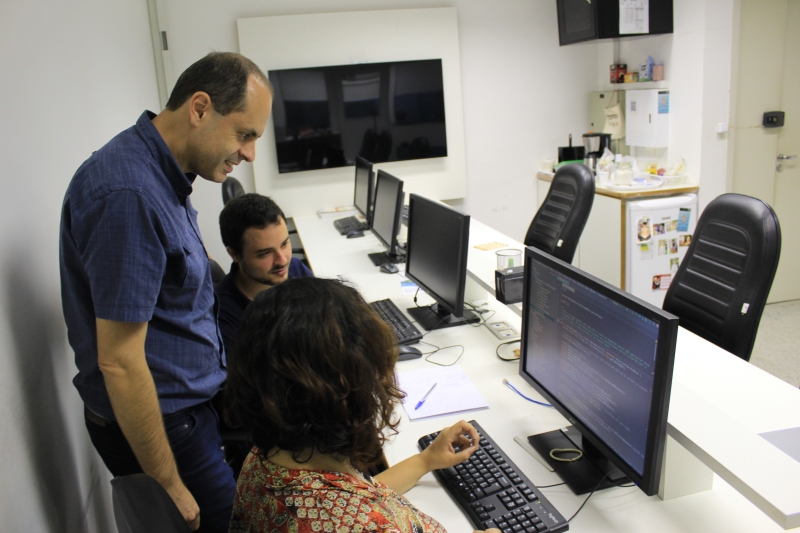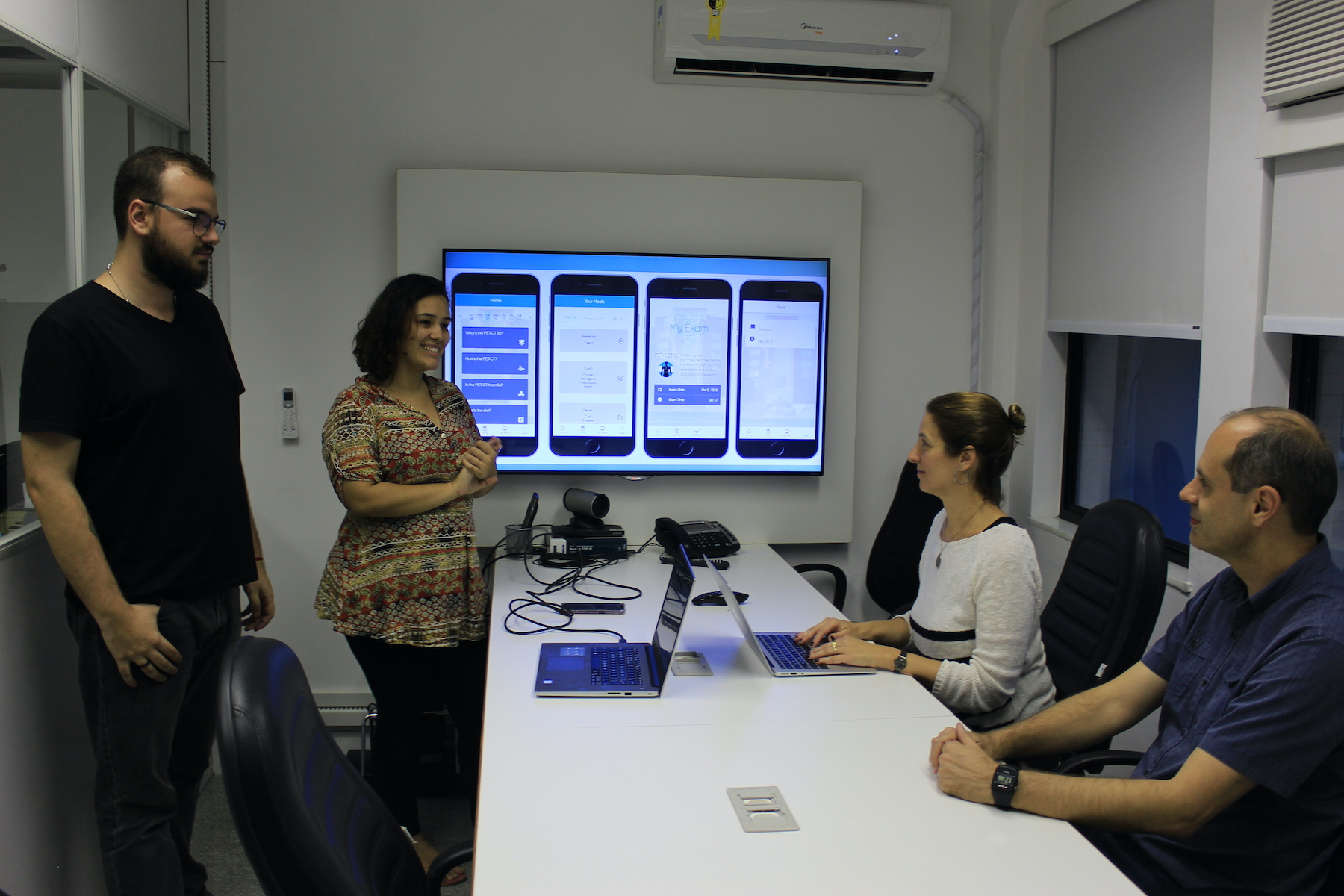Currently, there are countless technological resources that can be applied in the health area. The processes of diagnosis and treatment of diseases have achieved better results from the use of, for example, less invasive procedures (such as robotic surgeries), and the reduction in the recovery time of patients through faster and more effective tests, which contribute to improving the quality of life of assisted people. The technology also guarantees greater effectiveness in the work of doctors and other professionals in the field.
At the Universidade Federal Fluminense, the Project Factory of Software and Technology for Health (Softecs) brings together researchers from different areas in order to develop applications that help in the decision, both for the doctor and for the patient, in cases of important diseases of cardiology, complementing clinical assistance with more effective diagnostic and therapeutic tools. According to data from the World Health Organization, about 140 thousand people die from cardiovascular diseases in Brazil each year.
 10 professors of Computer Science, Telecommunications Engineering, Management and Entrepreneurship, Nursing, Medicine, Nutrition, Veterinary, and other health departments are involved in the research; and approximately 40 undergraduate and graduate students from these courses. Created in 2017, Softecs initially consisted of a multidisciplinary work on a decision support system for the diagnosis of Dementia and Alzheimer’s Disease, derived from the doctoral thesis of Flávio Luiz Seixas, professor at the Department of Computer Science and current coordinator of the initiative — whose physical space is the Midiacom Laboratory, based at the Institute of Computing and at the School of Engineering.
10 professors of Computer Science, Telecommunications Engineering, Management and Entrepreneurship, Nursing, Medicine, Nutrition, Veterinary, and other health departments are involved in the research; and approximately 40 undergraduate and graduate students from these courses. Created in 2017, Softecs initially consisted of a multidisciplinary work on a decision support system for the diagnosis of Dementia and Alzheimer’s Disease, derived from the doctoral thesis of Flávio Luiz Seixas, professor at the Department of Computer Science and current coordinator of the initiative — whose physical space is the Midiacom Laboratory, based at the Institute of Computing and at the School of Engineering.
“The app creation process begins with the presentation of a demand by a teacher, student, or health professional. This request is received by a professor of Computer Sciences who collaborates with the project, who invites an undergraduate student to participate,” explains the researcher. The development team is formed by a representative of the health area, a collaborating professor of the Institute of Computing, and an undergraduate or graduate student in Computer Sciences or related technological areas. During the formulation of the application, the team will be able to consult other professors to suggest or evaluate the technological choices.
Softecs applications are generated to solve real health problems. For the professionals involved in the project, examples of their functions are consultation and updating of the electronic medical records, support for the execution of clinical guidelines, support for the diagnosis and treatment of illnesses. For patients, on the other hand, consultation and display of information about the disease, guidance, in addition to monitoring the prescription of a diet are notable benefits.
Some diseases addressed are heart failure, Alzheimer’s dementia, senile depression, and peripartum myocarditis. For most of these diseases, diagnosis and treatment follow a set of protocols. Therefore, the task of the teams involved in creating the applications is based on analyzing these clinical guidelines and proposing systems that support their execution, as is the case with decision support. According to Professor Flávio Luiz, “a benefit to the health of these types of systems is related to the quality of service provision and patient safety, as it brings the knowledge published in the medical literature to professionals, displaying it in a practical and appropriate format for clinical context.”
Some of the apps are under development, while others are in the testing phase when they are presented to end-users for an assessment of usability and/or patient experience. To improve products, Softecs has partnerships and projects with several institutions, among them Fundação Oswaldo Cruz (Fiocruz), National Scientific Computing Laboratory, RNP, Niterói City Hall, National Institute of Cardiology, D’Or Institute of Research and Teaching, and SEBRAE; in addition to international universities like Universitá Degli Studi Di Brescia and Amsterdam Universitair Medisch Centrum.
 The PET-CT-PREPARATION project, whose target audience is patients with infectious endocarditis susceptible to PET-CT image examination (tomography that assesses the metabolism of the analyzed structures), is an example of the work carried out by Softecs. The Telecommunications Engineering undergraduate and a member of the team that makes the application, Celine Lacerda de Abreu Soares, details the need for its use: “you have a stressful exam to do and you must prepare in advance. You weren’t able to absorb all the indications made by your doctor or healthcare professional. With the platform, there is the possibility for the patient to receive what is needed during such a delicate period, being informed and alerted about everything they should eat during the preparation of their exam,” she illustrates.
The PET-CT-PREPARATION project, whose target audience is patients with infectious endocarditis susceptible to PET-CT image examination (tomography that assesses the metabolism of the analyzed structures), is an example of the work carried out by Softecs. The Telecommunications Engineering undergraduate and a member of the team that makes the application, Celine Lacerda de Abreu Soares, details the need for its use: “you have a stressful exam to do and you must prepare in advance. You weren’t able to absorb all the indications made by your doctor or healthcare professional. With the platform, there is the possibility for the patient to receive what is needed during such a delicate period, being informed and alerted about everything they should eat during the preparation of their exam,” she illustrates.
It is a way to unite patient and institution for health, through mutual cooperation and under the guidelines of responsible agencies.
Celine Lacerda de Abreu Soares
For Flávio Luiz, one of the biggest challenges encountered during the implementation of the applications was to properly understand the problem presented by the health representative and to define together with the team a value proposition to be implemented in the Minimum Viable Product, or MVP. According to the professor, “the MVP represents the requirements of greater added value to the client, and with the least investment in terms of scope, cost and time.” One of the goals of MVP is to validate the product’s functionality with its users.
Defining which device most suitable for the application’s adhesion was a difficulty that the student in Information Systems and member of Softecs, José Paulo de Mello Gomes, faced during the project. “First we opted for hybrid development — which enables the application on different platforms — to reach users of the Android and iOS operating systems, but we faced some problems and moved to native Android development,” says the student.

José Paulo was part of the team responsible for CARDI.O, a platform for monitoring patients with heart failure. In it, users inform their health status during the days (heartbeat, pressure, weight, fatigue). In addition, it also reminds the monitored to perform their activities such as weighing themselves, taking their medications, exercising, limiting their intake of fluids, in addition to scheduled appointments and informing them about the disease.
“The project reinforced my idea about the IT course, of being a means to an end, that is, a way of providing a solution to someone’s problem and, consequently, having the IT professional as an intermediary,” declares the student. In addition, Softecs helps the institution’s students to discover a crucial expanding field: telehealth, which has the potential to not only improve people’s quality of life but also to take care of communities that are not always close to places with medical assistance. The undergraduate student Celine also calls attention to comfort both for users of the applications and for the hospitals involved: “is a way to unite patient and institution for health, through mutual cooperation and under the guidelines of responsible agencies.”




